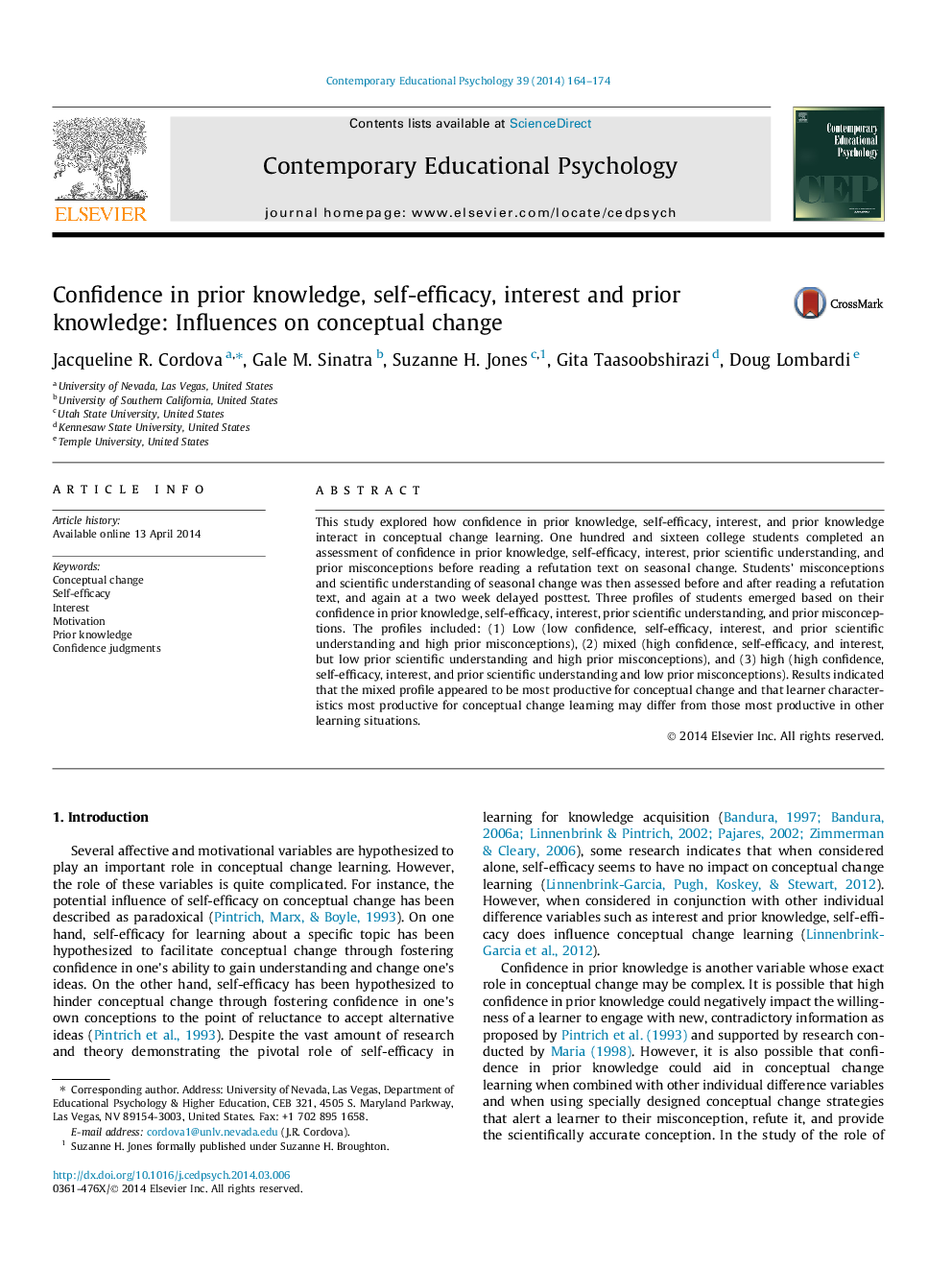| Article ID | Journal | Published Year | Pages | File Type |
|---|---|---|---|---|
| 352642 | Contemporary Educational Psychology | 2014 | 11 Pages |
•Student profiles were formed using cluster analysis.•Prior knowledge, confidence in PK, self-efficacy, and interest were used.•Student profiles accounted for differences in conceptual change learning.•Confidence in prior knowledge may facilitate conceptual change in some cases.•Self-efficacy and interest may help learners maintain conceptual change at times.
This study explored how confidence in prior knowledge, self-efficacy, interest, and prior knowledge interact in conceptual change learning. One hundred and sixteen college students completed an assessment of confidence in prior knowledge, self-efficacy, interest, prior scientific understanding, and prior misconceptions before reading a refutation text on seasonal change. Students’ misconceptions and scientific understanding of seasonal change was then assessed before and after reading a refutation text, and again at a two week delayed posttest. Three profiles of students emerged based on their confidence in prior knowledge, self-efficacy, interest, prior scientific understanding, and prior misconceptions. The profiles included: (1) Low (low confidence, self-efficacy, interest, and prior scientific understanding and high prior misconceptions), (2) mixed (high confidence, self-efficacy, and interest, but low prior scientific understanding and high prior misconceptions), and (3) high (high confidence, self-efficacy, interest, and prior scientific understanding and low prior misconceptions). Results indicated that the mixed profile appeared to be most productive for conceptual change and that learner characteristics most productive for conceptual change learning may differ from those most productive in other learning situations.
